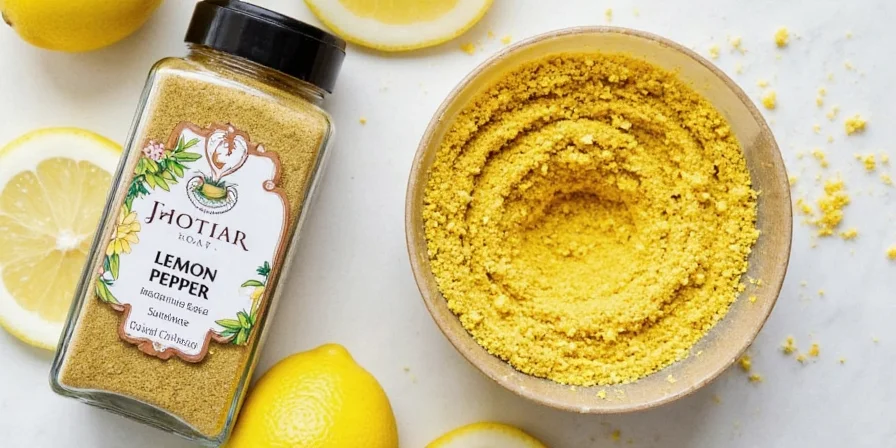
If you've ever wondered how restaurants achieve that bright, tangy flavor in grilled chicken and roasted vegetables, the secret is simple: lemon pepper seasoning. This guide reveals exactly how to use lemon pepper properly for perfect results every time—whether you're cooking chicken, fish, vegetables, or even popcorn. Skip the common mistakes most home cooks make and discover professional techniques that transform ordinary meals in under 5 minutes.
Quick Start Guide: How to Use Lemon Pepper Properly (3 Key Rules)
Follow these three rules for perfect results with any recipe:
- Apply at the right time: Sprinkle lemon pepper during the last 5-10 minutes of cooking (never at the beginning) to prevent burning the citrus compounds
- Use the right amount: For chicken or fish (1-1.5 lbs), use 1-1.5 teaspoons (not tablespoons!)
- Pair with oil: Always toss proteins or vegetables with olive oil first to help the seasoning adhere
What Is Lemon Pepper Seasoning? (Simple Explanation)
Lemon pepper is a spice blend combining dried lemon zest and coarsely ground black pepper. Unlike what many believe, it doesn't contain lemon juice (which would make it clump) or artificial flavors in quality versions. The magic happens when the citrus oils interact with the pepper's heat compounds, creating a bright yet warm flavor that enhances almost any dish.
| Common Use | Perfect Amount | When to Apply |
|---|---|---|
| Grilled Chicken | 1-1.5 tsp per pound | Last 5 minutes of cooking |
| Roasted Vegetables | 1/2 tsp per 4 servings | After tossing with oil, before roasting |
| Salmon Fillets | 3/4 tsp per fillet | After flipping, before finishing |
| Homemade Popcorn | 1/4 tsp per 4 cups | Immediately after popping |
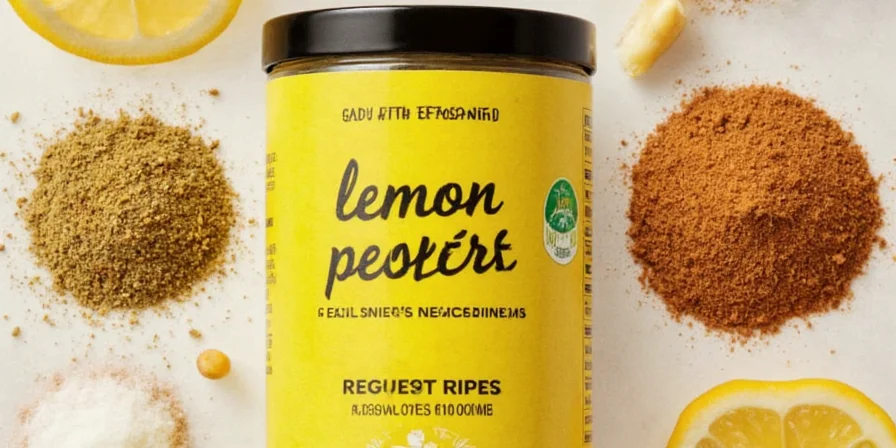
5 Best Lemon Pepper Recipes for Beginners
Start with these foolproof applications that deliver restaurant-quality results:
Lemon Pepper Chicken (Ready in 20 Minutes)
- Pat dry 4 chicken breasts
- Toss with 1 tbsp olive oil
- Sprinkle with 1.5 tsp lemon pepper seasoning
- Cook in skillet 6-7 minutes per side
- Rest 5 minutes before serving
Lemon Pepper Roasted Vegetables
- Toss 4 cups mixed vegetables with 1 tbsp oil
- Add 1/2 tsp lemon pepper seasoning
- Roast at 400°F for 20-25 minutes
Lemon Pepper Popcorn (Better Than Movie Theater)
- Pop 1/4 cup popcorn kernels
- Toss with 1 tbsp melted butter
- Sprinkle with 1/4 tsp lemon pepper
- Add pinch of salt to taste
Why Lemon Pepper Works: Simple Science
You don't need to be a scientist to use lemon pepper effectively, but understanding these two key points prevents common mistakes:
- The citrus burns easily: Adding lemon pepper too early causes the delicate lemon oils to burn, creating bitterness
- Pepper needs oil to shine: Black pepper compounds are fat-soluble, which is why tossing with oil first creates better flavor distribution
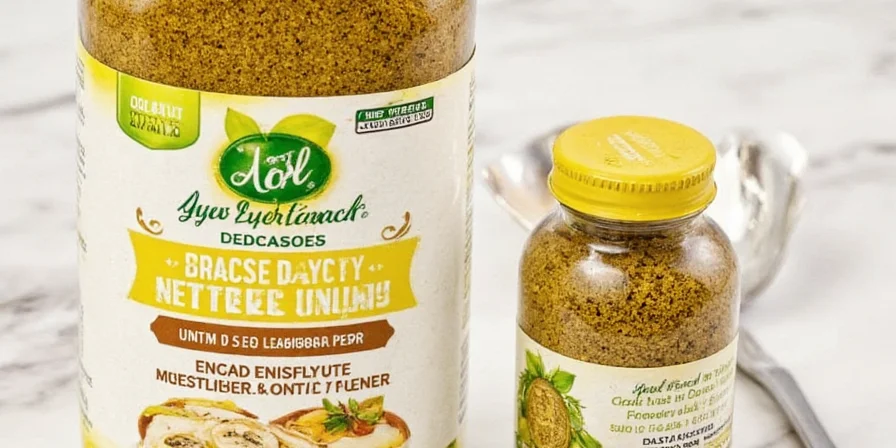
Easy Homemade Lemon Pepper (5-Minute Version)
Forget complicated recipes—this simple version works better than store-bought:
- 2 tbsp dried lemon zest (from about 3 lemons)
- 1 tbsp freshly ground black pepper
- 1 tsp kosher salt
- Zest lemons (avoid white pith)
- Spread zest on baking sheet
- Let dry at room temperature 2-3 hours
- Mix with pepper and salt
- Store in airtight container
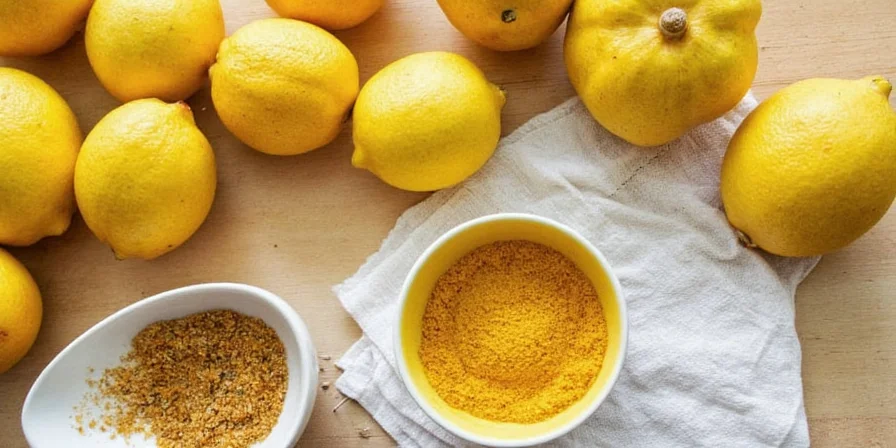
Lemon Pepper Mistakes to Avoid
These three errors ruin your dishes every time:
- Mistake #1: Using lemon pepper with lemon juice in the same recipe (creates bitter compounds)
- Mistake #2: Adding during boiling or high-heat searing (burns the citrus)
- Mistake #3: Storing in clear containers (light degrades flavor within weeks)
Where to Buy Good Lemon Pepper
Look for these quality indicators on the label:
- Contains only lemon zest, pepper, and salt (no "natural flavors" or fillers)
- Pepper is listed as "coarsely ground" (fine powder loses flavor faster)
- Dark glass or opaque container (protects from light degradation)
Advanced Tips for Perfect Results
Once you've mastered the basics, try these pro techniques:
- For chicken: Add lemon pepper after flipping, then squeeze fresh lemon juice during the last minute
- For fish: Mix with olive oil to create a paste that sticks better than dry seasoning
- For vegetables: Toss with oil first, then add lemon pepper AFTER roasting for brighter flavor
FAQs: Quick Answers to Common Questions
Can I use lemon pepper on steak?
Yes, but apply during the last 5 minutes of cooking. Lemon pepper works best with leaner cuts like flank or skirt steak, not rich marbled cuts.
Does lemon pepper expire?
Yes, typically within 6 months. Store in a dark, cool place in an airtight container. If it smells musty or loses its citrus aroma, replace it.
Can I make lemon pepper without salt?
Absolutely. Just omit the salt and adjust seasoning when cooking. This is helpful for those monitoring sodium intake.
What's the difference between lemon pepper seasoning and lemon pepper sauce?
Seasoning is dry (zest + pepper), while sauces contain liquid bases. For cooking, dry seasoning works better as sauces can cause burning.
Can I use fresh lemon zest instead of lemon pepper?
You can, but fresh zest burns easily. If using fresh, add during the last 2 minutes of cooking and use half the amount.
Putting It All Together
Lemon pepper seasoning works best when you understand its simple nature: it's not complicated, but timing and technique make all the difference. Start with the basic applications, avoid the common mistakes, and you'll consistently create bright, flavorful dishes that taste professionally prepared. The best part? These techniques work whether you're using store-bought or homemade seasoning, with chicken, fish, vegetables, or even snacks like popcorn. Now that you know exactly how to use lemon pepper properly, you'll never serve bland food again.


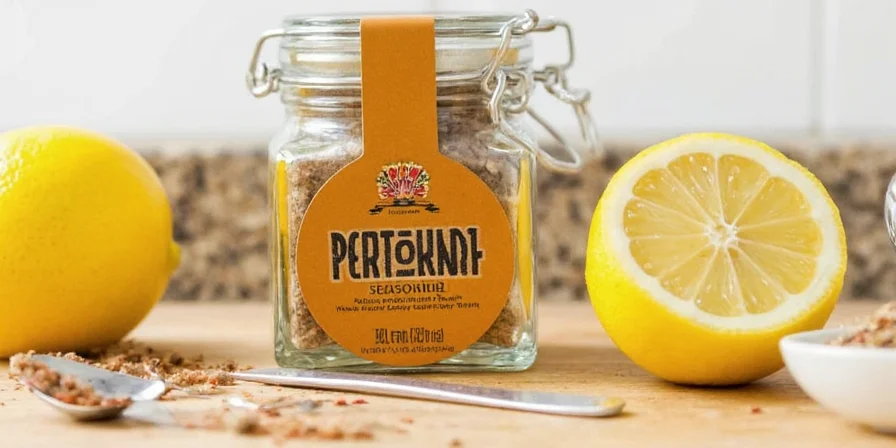









 浙公网安备
33010002000092号
浙公网安备
33010002000092号 浙B2-20120091-4
浙B2-20120091-4